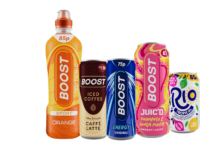By Michael Bennett, MD of Pelican Communications, a specialist in the environment & CSR, food, packaging & logistics and trade association sectors

GOOD news! Sustainability has arrived at the heart of the c-suite: and thank goodness there are opportunities to make money from it too.
The latest UK CEO survey from PwC, launched to coincide with the World Economic Forum Annual Meeting in Davos, shows concerns about the environment are now ahead of terrorism and access to capital on chief executives’ lists of things to worry about. In fact, a quarter of UK CEOs now say they are extremely concerned about climate change, up from just 7% back in 2016.
But it’s not all doom and gloom. More than half of chief executives also believe climate change initiatives will create new product and service opportunities, and 74% believe ‘their response to climate change initiatives will provide a reputational advantage for their organisation among key stakeholders’.
So can food and drink companies really turn sustainability into a commercial advantage? And should they even try to?
That last question may feel counterintuitive. After all, we are constantly told that today’s consumer demands strong values; that brands with a clear purpose outperform those with none; and that environmental and sustainability concerns in particular are high on shoppers’ list of ethical concerns.
Yet there remains a significant gap between green intentions and green buying behaviour. ‘In one recent survey 65% said they want to buy purpose-driven brands that advocate sustainability, yet only about 26% actually do so,’ a Harvard Business Review article reported last June. For many consumers, core attributes like basic product performance and price are still what drives buying decisions.
This puts chief execs who are spending (or plan to spend) big on sustainability in an unenviable position. Declaring your purpose is easy; sticking with that purpose when it turns out shoppers aren’t prepared to reward you for it (yet) takes real guts and leadership – and patient shareholders.
This is where the idea of ‘sustainability as USP’ starts to feel a little uneasy.
While it’s appealing to position sustainability as something that makes business sense and yields commercial gains, the implications of that logic can be problematic. What happens to consumer trust and brand equity when costly sustainability pledges fall by the wayside because they didn’t deliver a return?
Framing sustainability around selling points and commercial advantage comes with other risks too. It can make meaningful commitments seem hollow and transactional, and it can lead companies to overstate the importance of pedestrian sustainability measures in the hope of being rewarded with increased sales and favourable media coverage.
But in these sustainability-focused times, looking for the upsell in every single minor ‘green’ achievement feels especially tacky. Whatever happened to doing something because you genuinely believe it to be the right thing? Not something to be rewarded, admired or monetised – but just something that decent people running decent businesses do.
Sustainability is absolutely critical to the future of food and drink companies, and it’s right that they should consider their own economic sustainability as part of that equation. But there are dangers in putting too strong a commercial spin on your green conscience.
Today’s consumers have a highly calibrated BS filter – and those only in it for their own gain will be found out.












